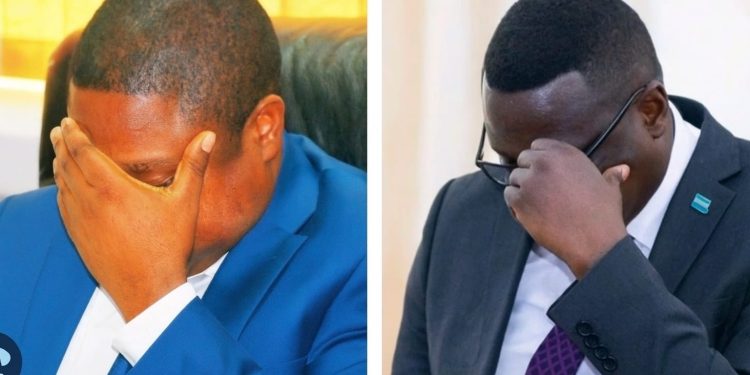By Albert David
The launch of the 7th Edition of the Sierra Leone Economic Update, a flagship report by the World Bank, was marked not by the strength of its findings but by the conspicuous absence of two of the nation’s most critical economic stewards: Finance Minister Ahmed Fantamadi Bangura and Bank Governor Ibrahim Stevens. Their nonattendance at an event of such national significance is not merely disappointing, it is deeply disturbing and ethically troubling, casting a long shadow over the legitimacy and sincerity of the entire exercise.
At a time when Sierra Leone’s economy is grappling with structural vulnerabilities, inflationary pressures, and youth unemployment, the Economic Update was expected to serve as a platform for transparent dialogue, policy accountability, and strategic recalibration. Instead, the absence of the country’s top fiscal and monetary authorities sends a chilling message: a retreat from scrutiny, a disregard for public engagement, and a troubling erosion of institutional integrity.
The report itself, while cautiously optimistic, projecting a rebound to 4.6% growth by 2027, does not shy away from exposing the deep-rooted economic ills plaguing the nation: declining iron ore prices, weak private sector development, and fragile agricultural productivity. These are not abstract figures, they represent the lived realities of millions of Sierra Leoneans. And yet, the very individuals entrusted with crafting solutions were absent, leaving a vacuum of leadership and accountability.
This absence undermines the credibility of the Update. It raises serious questions: Was this edition launched merely for optics? Is there a deliberate attempt to avoid confronting uncomfortable truths? In a democracy, economic transparency is not optional, it is a constitutional obligation. The failure to show up, engage, and respond to the findings is a betrayal of public trust and a dereliction of duty.
Moreover, the optics of this absence are internationally damaging. Development partners, investors, and civil society expect leadership to be present, vocal, and responsive. The silence of Sierra Leone’s economic heads risks portraying the nation as institutionally fragile and ethically compromised, especially when the report itself calls for fiscal consolidation and private sector reforms.
This moment demands more than passive optimism. It requires radical professionalism, intellectual honesty, and ethical courage. The Finance Minister and Bank Governor must explain their absence, engage with the report’s findings, and commit to a transparent roadmap for reform. Anything less is not just disappointing, it is economically negligent and democratically indefensible.













